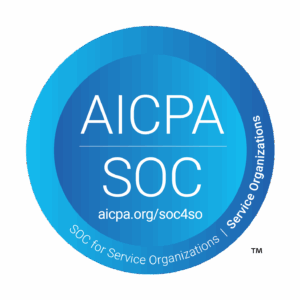“Good debt”. Sounds like an oxymoron, right? According to the American Psychological Association, 64% of Americans cite money as a significant source of stress.
But while most people believe that no debt is good debt, that’s not always true. For most individuals and businesses, big purchases such as a new home, car, business equipment, and materials, can only be afforded through loans.
This kind of debt isn’t necessarily bad as long as you can manage the payments on time and it could even potentially boost your credit score or good standing with future business lenders.
Defining Good Debt
Many types of debt are categorized as good. This type of debt will help you leverage your finances and can be used to invest in essential things, such as real estate, education, and business.
Good debt also generates income and increases your net worth. Additionally, debt that you’re able to pay back responsibly can help you create a reliable and favorable payment history on your credit report, thus improving your credit score in the process.
With a reputable payment history and a good credit score, you’ll likely continue getting approved for more financing that can grow your good debt.
For example, if you get approved for a home loan and make consecutive payments on it. Then, when you later decide to open a business, loan officers will be more likely to approve another new loan for it because of the positive payment reputation you’ve built with your home loan.
Good Debt vs. Bad – AKA High Interest – Debt
Generally speaking, borrowing money for something that immediately depreciates, such as cars, is considered bad debt.
When it comes to business, there are types of debt with higher interest than others. Payday loans, for example, are infamous for being a high-interest and short-term option with the notion that you’ll pay back the loan in full when you receive your next paycheck.
Additionally, payday loans also typically come with hefty added fees and are restricted depending on your state’s laws, leaving them to be considered as the bad guys of debt.
Good debt won’t have a high-interest rate, and the lender will work with you to offer an interest rate that’s fair to your finances.
The higher the interest rate, the more difficult it becomes to pay back the debt. This can result in missed debt payments, negatively impacting your credit score, and making it more difficult to get loans or other financing options in the future.
Examples of Good Debt in Business
When it comes to personal finances, home loans or student loans are great examples of good debt. But what about the business side?
Since the pandemic, the construction business has been booming, leading to an abundance of work but not enough cash in hand to start new projects. This has led to much variation in good debt. Examples include:
- Materials Financing: This is designed specifically for contractors in need of construction materials. A material financing provider fronts the costs so that you can have the supplies to advance on larger projects. Depending on the loan term, the contractor can then pay back the materials costs over time and confidently manage cash flow while growing their business.
- Invoice Factoring: Contractors can sell their unpaid invoices to a lender for a cash advance. With commercial invoice factoring, you can immediately free up cash from outstanding invoices, helping you to continue bidding on new projects while managing invoice debt. If the customer doesn’t pay back in time, there are two types of invoice factoring options: recourse and non-recourse. With recourse factoring, the contractor is responsible for buying the invoice back. With non-recourse, the lender will assume all risks.
- Lending: Obtaining a business loan can help owners manage and balance their cash flow while taking on new projects without delay. Monthly payments such as employee wages, inventory supplies, office lease bills, and general operations can pile up and be quite daunting when taking on a new costly project. Properly utilizing business loans to maintain your cash flow and regular expenses will allow you the freedom to start new projects without hesitation, further growing your business.
- Line of Credit (Seasonal Credit): This lending option can help offset costs during slower seasons. Some business owners face a “shoulder season” where certain times of the year tend to lag for one reason or another. Seasonal credit is a flexible option, allowing business owners to consistently pay and manage expenses despite any drastic revenue changes from month to month.
Using Good Debt to Your Advantage
Timing is often crucial for both small and large businesses, and it’s essential to have the financial stability necessary to support business growth.
When businesses leverage their debt to generate additional income, it can expedite current projects, goals, or expansions that otherwise would’ve taken longer to obtain.
Here are a few ways to leverage good debt and build your business:
- Establish good business credit: Like individuals, businesses also have credit scores. Taking on debt will help a business build its credit and increase its limit with lenders.
- Create continuous cash flow predictability: Business loans help owners better manage their cash flow and leverage existing profits.
- Expand your company: Business owners can expand by hiring more employees or get a bigger office space by getting a loan instead of waiting for cash.
Final Thoughts
Everyone’s financial situation differs. When companies are deciding whether it would be beneficial to take on debt, it’s always important to weigh the pros and cons. The amount of money and fund allocation plans are often the first two things to consider.
Additionally, interest rates, fees, and the payment timeline play a vital role in whether it will be good or bad debt for your company. Business owners should also thoroughly understand the Return On Investment (ROI) of the planned loan allocation to determine if it will support business growth and earning potential.




